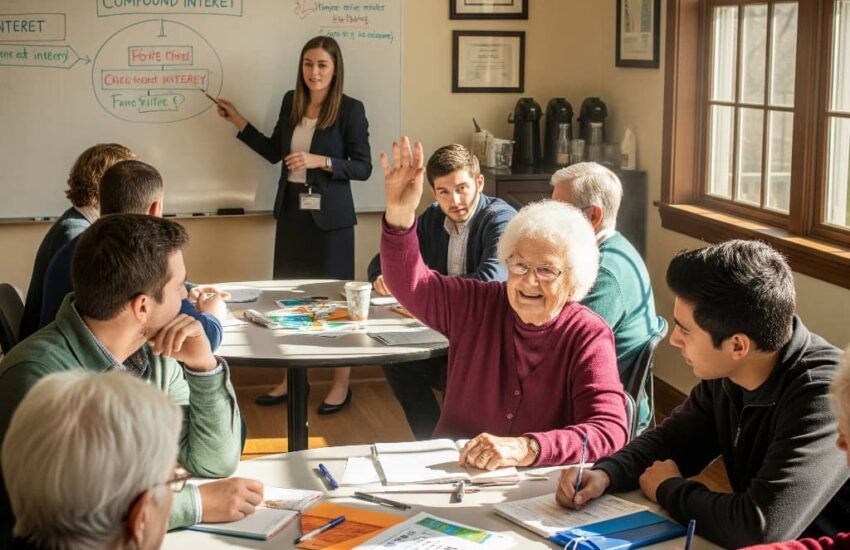Discover how community service during your MBA goes beyond resume-building; it builds leadership, perspective, and connections that transform both your career and character. I almost didn’t sign up for the pro bono consulting project at the local nonprofit. Between accounting homework and recruiting events, adding one more thing to my MBA schedule felt impossible. But when my finance professor mentioned that the community engagement office needed help restructuring a food bank’s budgeting process, something made me raise my hand. What I didn’t know then was that those few hours each week would become the most meaningful part of my business school experience and would teach me more about leadership than any case study ever could.
Community service in an MBA program is often misunderstood as just another line on the resume or a way to “give back” between internships and exams. But what I discovered was far more profound. Working with that small nonprofit, where every dollar counted and every decision impacted real people forced me to move beyond theoretical solutions and into the messy, human-centered reality of leadership. Suddenly, Excel models weren’t just academic exercises; they determined how many families could be fed. Strategic planning wasn’t about abstract growth; it was about ensuring sustainability for an organization serving vulnerable populations.
The perspective shift was immediate and humbling. In our strategy class, we debated competitive advantage and market positioning for Fortune 500 companies. At the food bank, “competitive advantage” meant finding ways to stretch donations further and “market positioning” meant making sure people who needed help knew where to find it. I’ll never forget the day the executive director told me, “Your supply chain optimization model is brilliant, but did you consider that many of our recipients don’t have cars to transport bulk items?” It was a wake-up call that no classroom discussion could have delivered. I realized that the most elegant solution is worthless if it doesn’t account for the people it’s designed to serve.
The connections forged through service turned out to be some of the most valuable of my MBA journey. My team at the food bank included classmates from different backgrounds, a former military officer, a corporate banker, and a public school teacher turned entrepreneur. In class, we interacted within the structured confines of group projects and cold calls. At the nonprofit, we saw each other in a different light: who stayed calm under pressure when the donation system crashed, who creatively solved problems with limited resources, who showed empathy for volunteers struggling with personal challenges. These moments revealed character in ways that case competitions never could, and many of those service relationships evolved into deep, lasting friendships and professional connections.
Recruiters noticed too. During interviews, when I discussed the food bank project, the challenges of implementing change in a resource-constrained environment, the leadership lessons learned from volunteers who’d been serving for decades, I saw genuine interest light up interviewers’ faces. These stories demonstrated emotional intelligence, adaptability, and practical leadership in ways that reciting financial formulas or marketing frameworks simply couldn’t. One hiring manager later told me that my commitment to community service signaled values that aligned with their company’s culture, a factor that increasingly matters in today’s purpose-driven business landscape.
The personal benefits extended beyond professional development. In the high-pressure environment of business school, where achievements are often measured in grades and job offers, community service provided a grounding sense of purpose. There was something powerfully balancing about spending a morning analyzing corporate valuation models and an afternoon serving meals at a shelter. It reminded me that business isn’t an end in itself, it’s a tool that, when wielded with wisdom and compassion, can create meaningful change in people’s lives.
Perhaps most importantly, these experiences fostered a lifelong commitment to service that didn’t end at graduation. Many of my classmates and I continue to serve on nonprofit boards, mentor young social entrepreneurs, and apply our business skills to community challenges. The MBA program gave us the tools, but the service experiences showed us why those tools matter beyond profit margins and shareholder returns.
Looking back, that pro bono consulting project didn’t just help a nonprofit, it transformed how I saw my role as a business leader. It taught me that true leadership isn’t about having all the answers; it’s about asking the right questions, listening to diverse perspectives, and recognizing that the most valuable solutions often come from unexpected places. So if you’re considering an MBA program, or currently in one, I urge you to look beyond the classroom and the career center. Find a cause that matters to you and give it your time and talent. You might just discover that the most important lessons aren’t found in textbooks, but in the quiet moments of service that change how you see the world and your place in it.
References
Department of Education, Republic of South Africa. (2015). Report of the Working Group on Community Service for Graduates in South Africa. Retrieved from https://www.justice.gov.za/commissions/feeshet/docs/2015-Report-WorkingGroup-CommunityService-Graduates.pdf
Afzal, M., & Hussain, I. (2020). Impact of community service learning on the social skills of students. Journal of Education and Educational Development, 7(1), 63-75. Retrieved from https://files.eric.ed.gov/fulltext/EJ1259929.pdf
Pre-university students’ benefits from service-learning through community volunteer programs: A case study. (2022). International Conference on Social Science Studies (IConSoS). Retrieved from https://dergipark.org.tr/en/download/article-file/2721845
Ellin Lolis Consulting. (2018). Why MBAs care about community service. Retrieved from https://ellinlolis.com/blog/why-do-business-schools-care-about-community-service/
Ain Nuraisha, R., & Othman, M. (2025). Students’ perception on the impact of community service and volunteerism in developing teamwork skills. Universiti Kebangsaan Malaysia. Retrieved from https://www.ukm.my/personalia/wp-content/uploads/2025/06/16.-Ain-Nuraisha-UPNM.pdf

